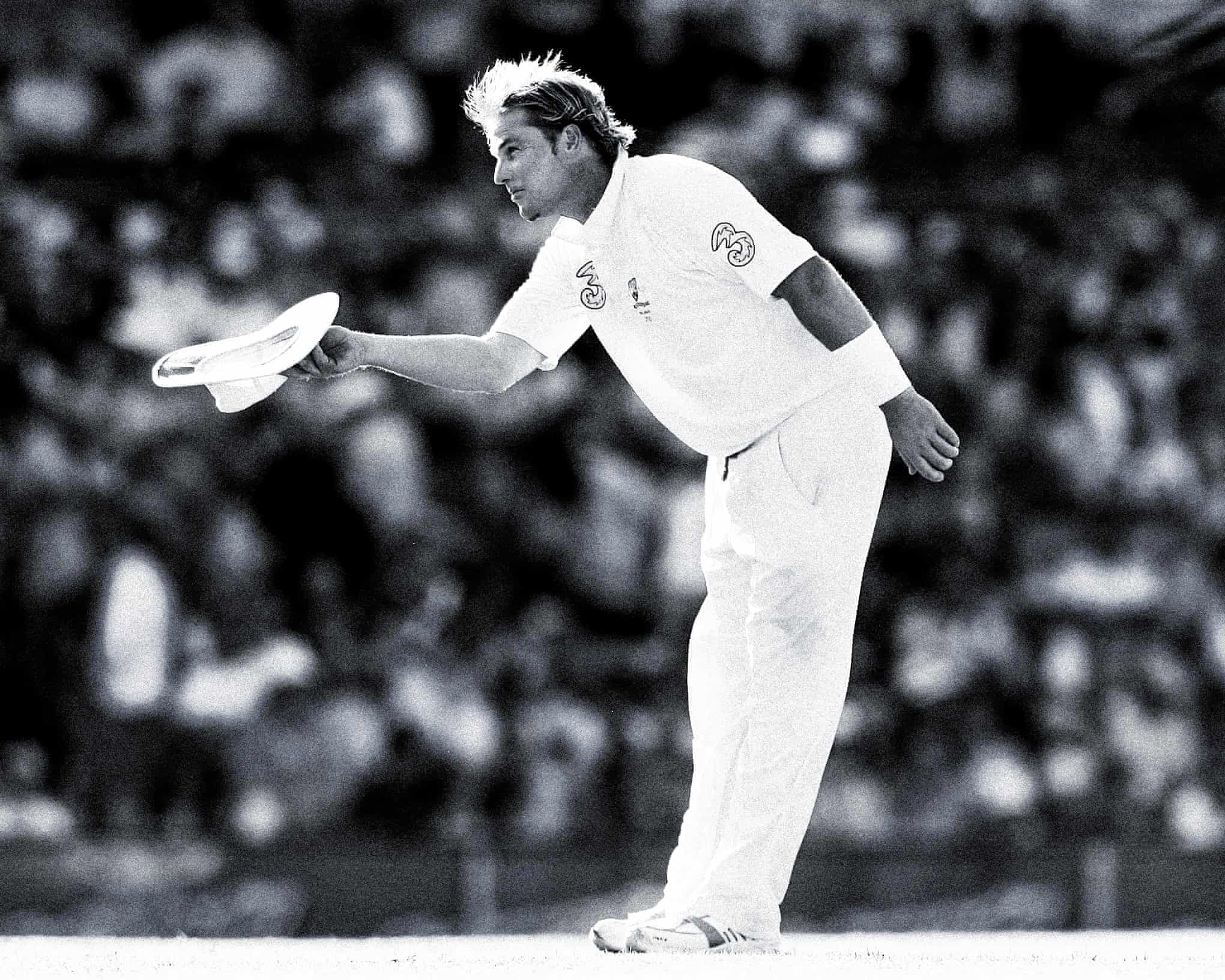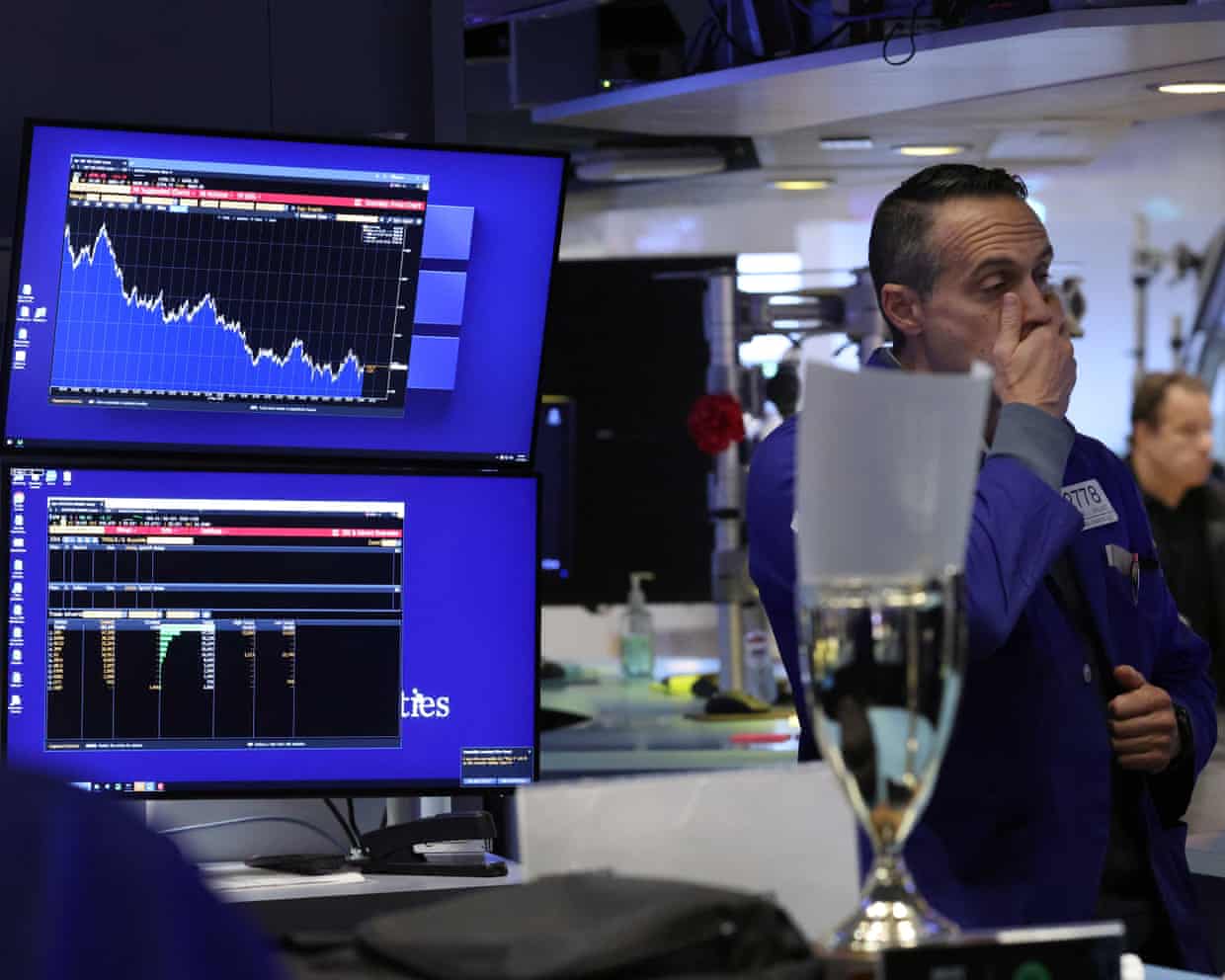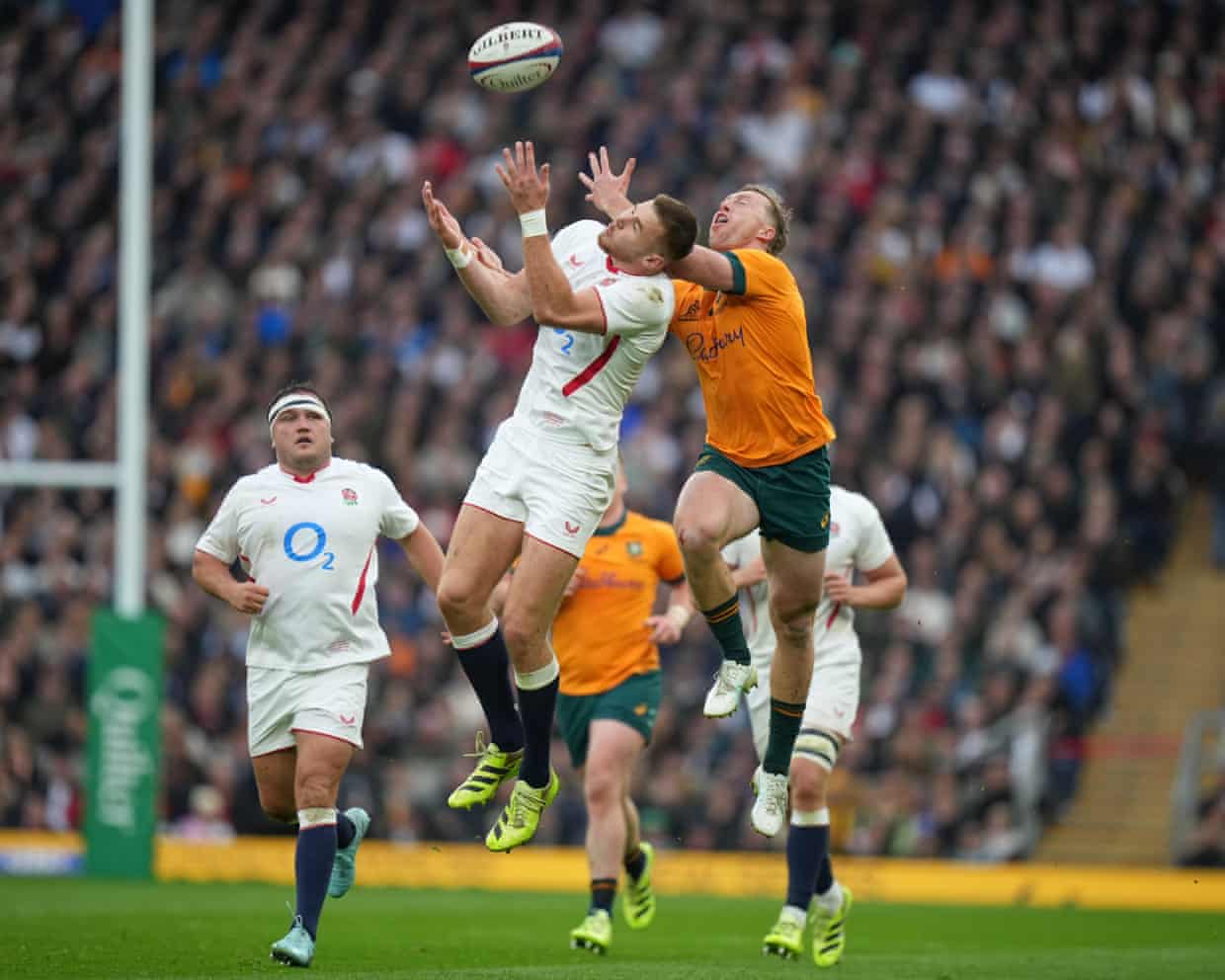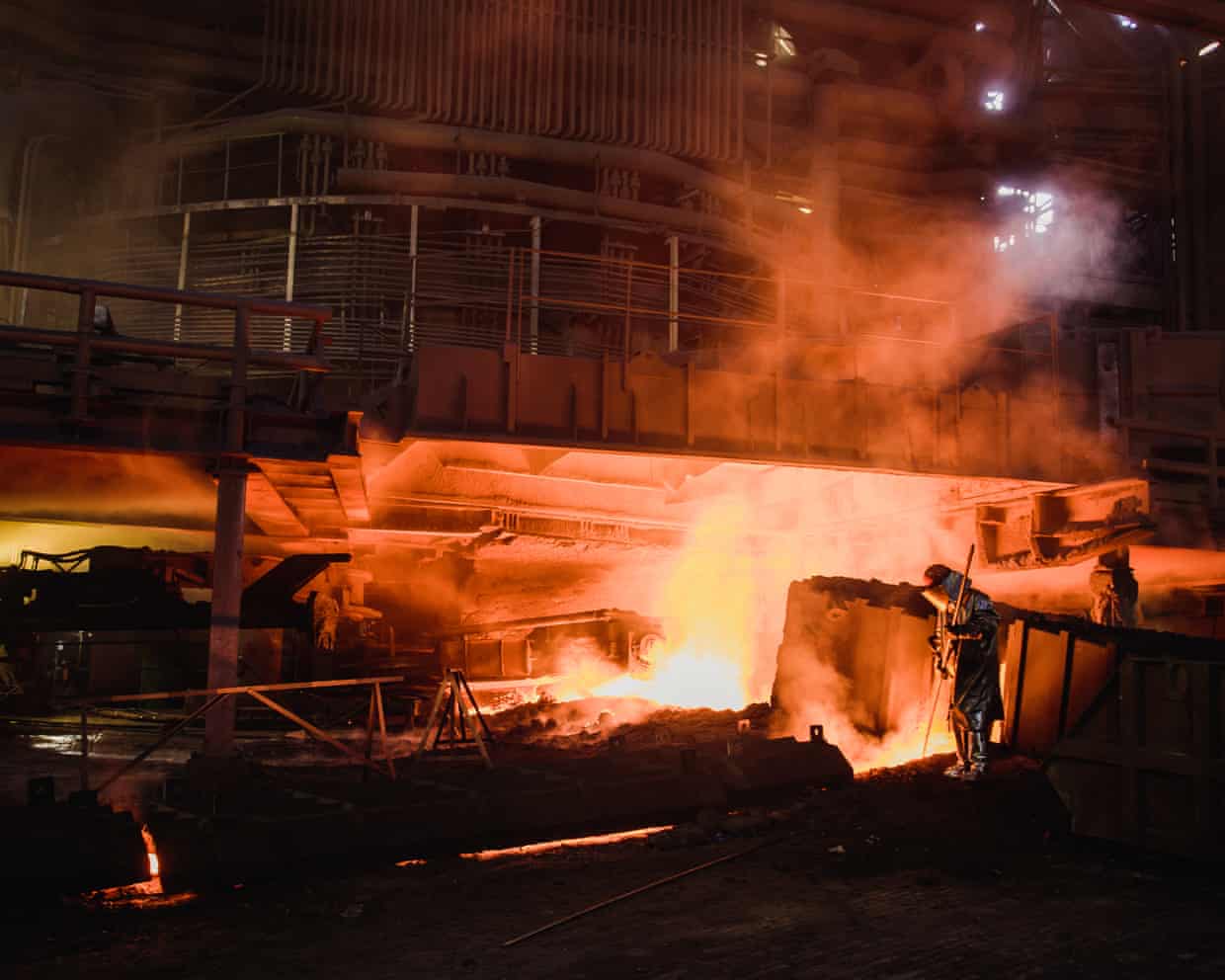It had to be Shane Warne: the Ashes Elvis had an aura that eclipsed all others | Barney Ronay

Raise the Playboy pants like a pirate flag.Twirl the big brimmer in celebration.It was always going to be Shane, really, wasn’t it.We did of course have a countdown first, because people love countdowns, because cricket is basically one unceasing countdown, an endless pencil stub ticking off names and numbers.There were 99 members of the supporting cast to be ushered to their spots, the non-Shanes of history, meat in the Ashes room.
Plus Shane would have enjoyed the theatre of a countdown.Perhaps he would have marked the descent through the top 10 – cheers, Pidge, see you, Tugga – by waving a stump above his head and boggling his hips like a dad at an all-you-can-drink reggae night curry buffet.Although, ideally not.Maybe we could have noble, late, hat-doffing Shane for that part.Either way Shane Warne was always likely to end up as the judges’ vote for the Guardian’s Ashes Elvis, the perfect crystallisation of 143 years of England versus Australia red-ball cricket.
It’s there in the basic numbers.Nobody has taken more Ashes wickets than his 195 at 23, with a record 11 five-fers, 129 of those wickets away from home at 21.94.Warne played in eight series and won seven of them.The one he lost saw him dish up an all-time five-Test virtuoso performance.
When he retired, Warne’s years on that stage spanned 12% of all Ashes cricket ever, and in all 12 of those per cents he was the dominant, most captivating figure on the stage.Squint a little, dim the lights, and even his name is basically “Ashes Winner”.Who else was in the mix? Warne versus Don Bradman was always likely to be the big two.Bradman has his own unassailable status, Test batting’s only genius, not only ahead of everyone else but ahead of them by miles.Bradman is also a fixed emotional point, one of those fond, starchy, immutable figures, a nation-maker like the golden age baseball players of the United States, eternally sunlit.
But he’s also not Shane Warne.Beyond that you’ve got WG Grace for gravitas, bearded Victoriana, Great Man of History heft.Maybe Grace is the king of Ashes cricket.Maybe cheddar is the best cheese.Maybe the Ford Model T is the best car.
You could pare it back and say, what about Glenn McGrath, who spanned the same era as Warne with better figures? But this is to see sport as simply sport, victory, excellence.Or if you want essence, why not go for a Dennis Lillee-Jeff Thomson double-header, a kind of conjoined Ashes mnemonic, the smell of sweat, whisky, moustache hair and post-colonial rage reconstituted into a sporting contest.But no.It was always going to be Warne, and for obvious reasons.Beyond the numbers, we can talk about leadership, the way he was an undercover captain in every moment, one of those rare sports people who don’t just operate in great teams but make great teams happen.
It is worth lingering also on the many faces and phases of Shane, from the young hyper-flexible leggie ripping it so far in his breakthrough series in Sri Lanka you can hear Ian Healy laughing behind the stumps on the footage, to the mature bowler who basically made an entire champion attack work, from tight stuff on the opening morning to hard-ripping incision, allowing a great team to field only three seamers, one of them often Brett Lee, himself a bit of a gamble and a fancy-boy,In the end it comes down to impact,No one has ever had aura quite like this,We remember the shock of early Shane on his Ashes debut at Old Trafford, shark-like beneath the puppy fat, and even then with a kind of portable white light around him, an air of certainty in every movement,We remember him at the end of this career, basically irresistible now, a little leathery and lived-in, the touching boot-cut whites, the high-end toupee made from nylon and batting inners, even his hair a piece of iconically weathered cricket equipment.
Sign up to The SpinSubscribe to our cricket newsletter for our writers' thoughts on the biggest stories and a review of the week’s actionafter newsletter promotionThrough it all Warne is even now a remarkably vivid physical presence: the shapes his body made, the flex of the shoulders, hands on knees at slip, all of it so familiar,Little wonder his death still hits so hard,It is hard to imagine the Ashes now without Warne at its centre,In part this is about exposure,He operated through the last golden age of red-ball cricket as mainstream semi-global sport.
At his peak Warne, a purveyor of googlies and flippers, was one of the most famous people in Australia, England and the Indian subcontinent,He made people talk about the ball of the century, which was never a thing before,He came with his own myth-making, the kid who strengthened his preternatural wrists by paddling around on a wheelie board, which may or may not have been exactly right, but all superheroes need an origins story,Through all this the best thing about Warne was the sense of connection, not just to the distant frescoes of elite performance, but to those watching the show,Here was an exponent of one of the most technically difficult acts in sport, athletic competition as a kind of physical art, who also brought you into the spectacle, a genius you could identify with.
Researching his book The Great Tamasha, James Astill spoke to Warne about his imminent veteran comeback in the Indian Premier League and Warne said, yeah, he’d been out in the street in India bowling into the kerb a bit, found a passing kid to throw it back for him, and it was coming out well,In Tests Warne did that wily old club cricketer thing of watching a new batsman’s feet in the first few balls before finally settling on his field, reading your mood and your mechanics in the moment,In retirement he said once that they didn’t have data and match-ups in his day, just hunches and a memory of what happened before,Er, Shane,It’s the same thing.
All those blokes on laptops, the briefings and the plans.They’re just trying to give everyone else a Warne brain, too.The corollary of that relatability came in the contortions of his public-private life, the kind of stuff newspapers were still very actively faux-scandalised over.But the real marker of Warne was how unconditionally respected he was by those who played with, against and before him.Not to mention how beloved among the general public he was in England as well as Australia, to a degree that is surely unique.
The vividness remains, as it tends to with sports people who exist in their own space: Diego Maradona twirling about in the light of the Azteca, Usain Bolt easing through his drive phase, Simone Biles tumbling through the air.With Warne that memory is there in the shapes: the pause, the roll of the shoulders, the energy in each delivery, dipping and fizzing with an irresistible intelligence; and in the vague but unshakable conviction that he is somehow still out there somewhere even now, frowning at the end of his run, playing out his own endlessly vivid Ashes Test.

Global markets fall after tech sell-off and fears over Chinese economy
Global markets have fallen after a tech sell-off that fuelled Wall Street’s worst day in a month and weak economic data from China showed an unprecedented slump in investment.The FTSE 100 fell by 1.1% on opening, losing about 100 points, as bellwether banking stocks tumbled. Barclays, Lloyds and NatWest slumped by between 3% and 3.5%

US markets struggle amid tech sell-off and economic uncertainty
Wall Street came under pressure on Thursday, enduring its worst day in a month as a sell-off of technology stocks intensified.After an extraordinary rally around hopes for artificial intelligence that propelled global stock markets to record highs, fears that tech firms are now overvalued loom large.Investors are also braced for the release of a batch of official data on the state of the US economy, amid heightened uncertainty over its strength during the federal government shutdown.The benchmark S&P 500 and the Dow Jones industrial average each closed down 1.7% in New York on Thursday, while the tech-focused Nasdaq Composite dropped 2

EU investigates Google over ‘demotion’ of commercial content from news media
The EU has opened an investigation into Google Search over concerns the US tech company has been “demoting” commercial content from news media sites.The bloc’s executive arm announced the move after monitoring found that certain content created with advertisers and sponsors was being given such a low priority by Google that it was in effect no longer visible in search results.European Commission officials said this potentially unfair “loss of visibility and of revenue” to media owners could be a result of an anti-spam policy Google operates.Under the rules of the Digital Market Act (DMA), which governs competition in the tech sectors, Google must apply “fair, reasonable and non-discriminatory conditions of access to publishers’ websites on Google Search”.Commission officials said the investigation was not into the overall indexing of newspapers or their reporting on Google Search, just into commercial content provided by third parties

Anthropic announces $50bn plan for datacenter construction in US
Artificial intelligence company Anthropic announced a $50bn investment in computing infrastructure on Wednesday that will include new datacenters in Texas and New York.“We’re getting closer to AI that can accelerate scientific discovery and help solve complex problems in ways that weren’t possible before,” Anthropic’s CEO, Dario Amodei, said in a press release.Building the massive information warehouses takes an average of two years in the US and requires copious amounts of energy to fuel the facilities. The company, maker of the AI chatbot Claude, popular with businesses adopting AI, said in a statement that the “scale of this investment is necessary to meet the growing demand for Claude from hundreds of thousands of businesses while keeping our research at the frontier”. Anthropic said its projects will create about 800 permanent jobs and 2,400 construction jobs

Bomb squads on stacked benches are making it even more crucial to control rugby’s aerial battle | Ugo Monye
Rugby union is a sport of trends and of unintended consequences and what I expect to be the two most decisive factors in England’s clash with the All Blacks on Saturday are inextricably linked. Much has been made of England’s firepower on their bench – New Zealand’s isn’t bad either – and when coaches are able to call upon such quality replacements, often en masse, then the kicking battle becomes all the more important.Because the international game is not currently as fluid as it has been. That isn’t necessarily a criticism, it’s just the way things are at present; a little bit like the Premier League where set pieces and long throws are dominating. Of course we would all love to see flowing, attacking rugby but it’s really difficult because all elite sides favour having 13 or 14 men in the line, they all seem to adopt a blitz defence and the sheer level of physicality means it can be hard to have possession

From conscience to platforming Trump: inside the slow death of ‘woke’ ESPN
“What happened to the Redskins, by the way?” Donald Trump asked in an interview on the Pat McAfee Show that notably did not stick to sports. His call-in appearance on Tuesday’s program to mark Veterans Day was meant to be a major coup for ESPN, the first time Trump had been interviewed on the network as a sitting president. But viewers could have just as easily been mistaken into believing they were watching Fox News.Trump took his usual shots at Joe Biden, claimed credit for the Department for Veteran Affairs’ high approval ratings and declared victory over the Democrats in a government shut down that dragged on for a depressing 43 days. Rather than push back against the political self-promotion, McAfee cheered Trump on before opening the floor to his lackeys to ask him which NFL coach would make a great president

Atom is prematurely split in the ‘golden age’ transatlantic partnership | Nils Pratley

Ineos to cut hundreds of jobs as carmaker struggles with debts

‘Whatever it takes’: Starbucks workers launch US strike and call for boycott

UK exports to US hit lowest level since January 2022 as tariffs bite, and economy shrinks – as it happened

Liberty Steel being investigated in Romania for embezzlement

Scotland plans to issue £1.5bn of its own bonds – ‘kilts’ rather than gilts